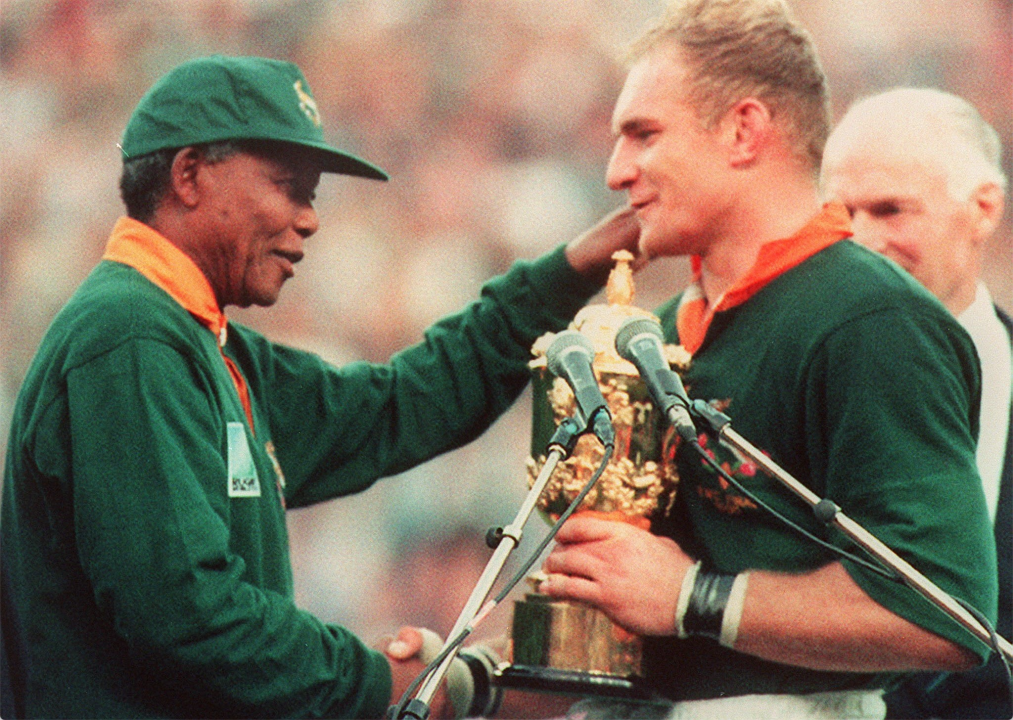
Famous instances of sports diplomacy
The people of the world's shared passion for sports has offered an apolitical opportunity for different countries to build strong relations and improve morale between cultures. Long before the first modern Olympic Games in 1896, countries and states have used sports to bridge divides, increase cultural understanding, and foster dialogue between all people. With sports diplomacy, the politics of a country can fade and worldwide public opinion can be shaped.
Using sports to improve frayed relations is not new. One of the first instances of sports diplomacy occurred in ancient Greece under the reign of Iphitos, King of Elis. Armed conflicts abounded at that time, and Iphitos determined to break that cycle in the ninth century B.C. He consulted the oracle of Delphi, as the legend goes, who recommended he create a sporting competition, which became the Olympic Games. Iphitos signed a truce with fellow kings, Cleisthenes of Pisa and Lycurgus of Sparta. As a result of the accord, called Ekecheiria, every four years conflicts ended so the games could occur. It wasn't until 1992 that the International Olympic Committee (IOC) would officially reinstitute that truce, allowing athletes from the former Yugoslavia to participate in the games.
Modern-day instances of sports diplomacy put to question George Orwell's view of sports as "bound up with hatred, jealousy, boastfulness, disregard of all rules and sadistic pleasure in witnessing violence: in other words, it is war minus the shooting." Contrary to Orwell's beliefs, sport has been used to bring opposing sides together, even in times of actual war.
Stacker compiled a list of 10 famous instances of sports diplomacy, ranging from using sports to reunite a fragmented country to boycotting the Olympic Games. Click through to learn more about when sports either united people or raised awareness about a country.
You may also like: Best sports documentaries of all time
1914: World War I Christmas football truce
In the midst of World War I in 1914, German and British troops declared their own truce for Christmas. The two sides played a game of soccer in Belgium on the front lines. Their example proves that even in war, humanity can prevail—even if only for a moment.
1956: USSR versus Hungary water polo match
After the Hungarian water polo team arrived in Melbourne for the 1956 Olympics, they learned that Soviet tanks and troops brutally stopped an anti-Soviet uprising in Budapest, killing hundreds of people. The game between the Hungarian water polo team and the Soviet team in the semi-finals took on a greater significance for the Hungarians. The Hungarians not only beat the Soviets, but took home the gold that year.
1980: Countries boycott the Olympics for political reasons
The Olympic Games are supposed to unite the world, but that has not stopped countries from boycotting them for political reasons, particularly during the Cold War. The U.S. boycotted the 1980 Olympics in Moscow as a way to protest the Soviet Union's invasion and occupation of Afghanistan. Four years later, the Soviet Union boycotted the Olympics in Los Angeles along with 18 other nations.
1995: Nelson Mandela unites a country with rugby
In 1995, one year after the first democratic election for all of its citizens, South Africa hosted the Rugby World Cup. Mandela found a way to unite the entire country by wearing the Springbok jersey and hat—the team beloved by white South Africans, but despised by black South Africans.
1998: Iran vs. USA in FIFA World Cup
Ever since the Iranian Revolution, there has been enmity between the two countries, but soccer served as a form of diplomacy between the U.S. and Iran in the 1998 FIFA World Cup. FIFA regulations require team B—the Iranians—to walk toward team A—the U.S.—before the match and shake hands. Iranian Supreme Leader Khamenei had ordered the team not to walk toward the American soccer players. Mehrdad Masoudi, a FIFA media officer, managed to come up with a comprise where the Americans walked toward the Iranian players.
1971: U.S. ping pong team invited to China
Cold War tensions were at their height between the U.S. and China in 1971, when the American ping pong team received a surprise invitation from the Chinese team to visit China. Time magazine proclaimed that it was “the ping heard round the world.” Seven months later, President Richard Nixon visited China, thus opening up relations between the two countries.
1972: Eight hockey matches between Canada and the USSR
During the Cold War, Canada and the Soviet Union played a series of eight hockey matches, with four games in each country. Engineered by the two governments to improve relations, Russian hockey players competed against Canadian NHL players, marking the first time they faced off against each other.
2011: Cricket games between India and Pakistan
Tensions between Pakistan and India often run high, with both countries claiming the Kashmir region. Cricket is the most popular sport in both countries, and in 1978 cricket matches between them were restored. In 2011, the leaders of the two countries met when their teams played each other during the cricket World Cup semifinal.
2015: MLB goodwill mission
In 2015, President Barack Obama announced the U.S. and Cuba would open embassies in each other’s countries. That same year, Dodger players Yasiel Puig, a Cuban native, and Chase Utley, along with others from Major League Baseball (MLB), visited Cuba. It marked the first MLB goodwill mission in 16 years.
2018: North Korea joins the Olympics in South Korea
About a month before the 2018 Olympics began in Pyeongchang, South Korea, the two Korean governments held talks with both sides agreeing to allow North Korean athletes to take part in the games and to send a joint women's hockey team to the games. The hockey team represented the first time the two countries competed together in the Olympics as a unified team.



